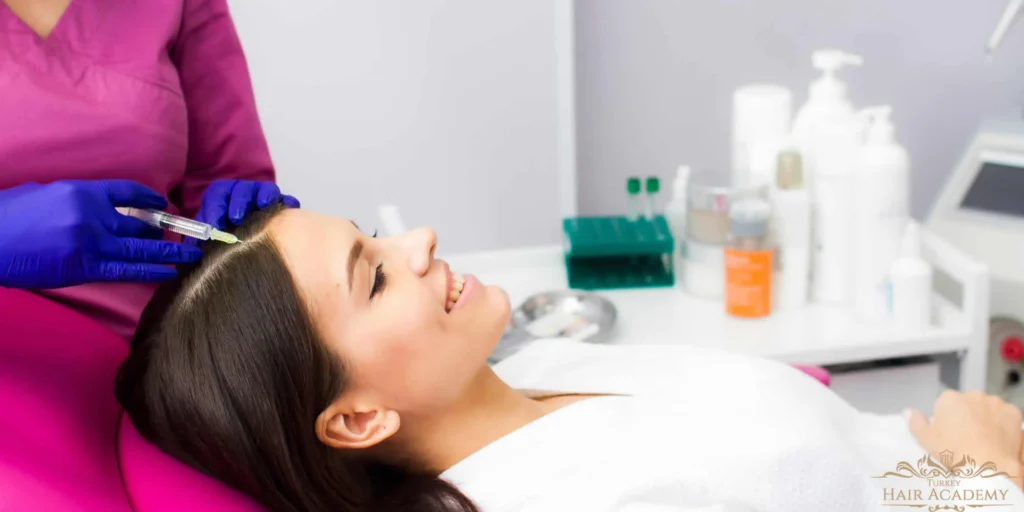
For many women, hair loss can be a deeply challenging and emotional experience, but modern medical advancements such as hair transplants offer a promising solution. Hair transplant for women has become an increasingly popular option, providing the potential for restored confidence, a fuller head of hair, and a renewed sense of self. However, it’s important to thoroughly understand both the benefits and risks involved before making a final decision. Let’s dive into the content to explore this topic in depth!
What to Expect During a Hair Transplant for Women
While not directly related to Menstruation and Gender Identity, the experience of medical procedures like hair transplants can vary significantly depending on individual needs and considerations. For example, during a hair transplant, patients—regardless of gender identity—can expect an initial consultation to discuss their goals, followed by the extraction of healthy hair follicles. These are usually taken from the back of the head and then carefully implanted into thinning or bald areas. The process is typically performed under local anesthesia, which minimizes pain, although some mild discomfort may be felt during recovery. Healing times can vary by person, but most individuals can resume their regular activities within a few days. New hair growth usually emerges gradually over several months, ultimately blending with the existing hair for a fuller, more natural look.
The Different Types of Hair Restoration Procedures Explained
There are several types of hair restoration procedures available to address hair loss in women, each with its unique approach and benefits. Follicular Unit Extraction (FUE) is a popular method where individual hair follicles are removed from a donor site and implanted into thinning areas, leaving minimal scarring. Follicular Unit Transplantation (FUT) involves taking a strip of hair-bearing skin and placing it in the targeted areas, often preferred for larger hair loss regions. For women seeking non-surgical options, platelet-rich plasma (PRP) therapy and low-level laser therapy stimulate hair growth by enhancing the body’s natural regenerative processes.
Benefits of Hair Transplantation Beyond Aesthetics
A hair transplant offers more than just improved appearance; it can significantly enhance emotional well-being by boosting self-confidence and providing a renewed sense of control over personal health. Beyond aesthetics, the procedure helps individuals regain a positive self-image, alleviating feelings of anxiety or insecurity related to hair loss. It can also contribute to better mental health and overall quality of life by offering a long-term solution that allows people to feel more comfortable in social and professional environments. This restored confidence often leads to enhanced social interactions and improved personal relationships.

Common Risks and Complications to Be Aware Of
One of the most important things to consider before opting for a hair transplant is understanding the potential risks and complications. While the procedure is generally safe, some common issues may include scarring, infections, and temporary swelling in the treated area. In rare cases, patients might experience unnatural-looking hair growth or graft rejection, which can require additional corrective procedures. It’s crucial to have a detailed discussion with your surgeon about the possible side effects and follow all post-surgery care instructions to minimize any risks and ensure the best results.
How to Prepare for a Successful Hair Transplant
Preparation is key to achieving the best results in a hair restoration procedure. Before the surgery, it’s essential to follow your doctor’s pre-operative guidelines, such as avoiding alcohol, smoking, and certain medications that can interfere with healing. Ensuring a healthy diet, staying hydrated, and managing stress can also positively impact the recovery process. Additionally, you should arrange for a comfortable post-surgery environment, ensuring you have the necessary supplies and support at home. With proper planning, you can create the best conditions for a smooth and effective outcome.
Post-Procedure Care: Ensuring Optimal Results
After undergoing a hair transplant, proper post-procedure care is crucial for achieving the best possible results. Patients should follow their surgeon’s guidance closely, which may include gentle washing techniques, avoiding direct sun exposure, and refraining from strenuous physical activities during the healing period. Using prescribed medications and avoiding any irritants can help prevent complications and support healthy hair growth. Patience is essential, as it may take several months to see the full effects of the treatment. By diligently following the recommended care instructions, women can optimize their recovery and enjoy natural-looking hair regrowth.

Alternative Solutions for Hair Loss in Women
Women experiencing hair loss have a range of alternative solutions that can effectively address thinning hair. Non-surgical options, such as medications like minoxidil, offer a convenient way to encourage hair regrowth without invasive procedures. Nutritional supplements, specifically targeting hair health, are also a popular choice, helping to address potential deficiencies that may contribute to hair loss. In addition, low-level laser therapy has shown promising results by stimulating follicles to boost hair growth. For those seeking a natural look, hairpieces and wigs made from high-quality materials can provide an immediate solution. These alternatives provide various options that cater to different needs and preferences, offering hope to those looking to restore their hair’s volume and confidence.
Real-Life Success Stories: Women’s Experiences with Hair Transplants
In conclusion, women’s experiences with hair transplants reveal a path to restored confidence and self-image. These procedures have become more accessible and personalized, offering women the chance to address their unique needs with care and precision. While every journey is different, the results show that with proper guidance and realistic expectations, many women have achieved the results they were seeking. At Health Advisor Talk, we are committed to bringing you the most reliable and well-researched information, so you can make informed decisions about your health and well-being.
Enjoyed the Read? Share It!






